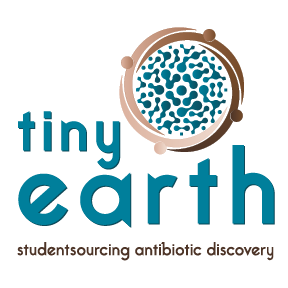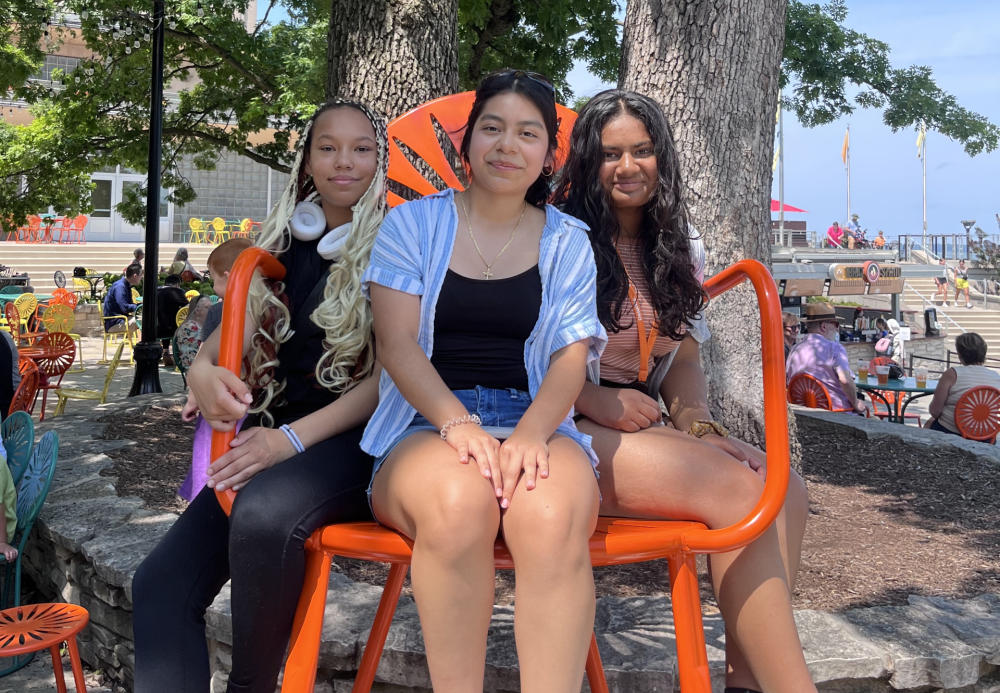Three high school students interned at Tiny Earth at the University of Wisconsin–Madison this summer through the six-week LEAP Forward Internship Program. Madison-area students Gyselle, Natania, and Neshia updated Tiny Earth Databases, supported the Tiny Earth Partner Instructor (TEPI) trainings, and explored different research pathways.
During LEAP, students get hands-on experience at a work site and participate in professional development activities with their peers. The program is designed for rising high school juniors and seniors with an interest in health sciences. Tiny Earth has hosted summer interns since 2019, providing an opportunity for students to learn about antibiotic discovery, science communication, and research administration.
“I chose to apply to the LEAP program because it stood out to me among other summer opportunities for its strong focus on healthcare within a UW facility, which also gave me a chance to get familiar with the campus,” said Natania. “I’ve learned that microbiology is important no matter where you go in science. I might choose to study microbiology along with whatever I end up doing in the sciences, to get a better understanding of science overall.”
Over 3,100 students from more than 60 institutions have entered information on the Tiny Earth Discovery Database, generating almost 30,000 entries. LEAP students corrected errors and updated a range of documentation for this database and the Tiny Earth Public Database.
In addition to online work, the students got their hands dirty. Neshia enjoyed collecting soil samples that Tiny Earth Partner Instructors (TEPIs) used to isolate bacteria at the July TEPI training, where faculty learned pedagogical techniques to teach Tiny Earth in their courses.
“[Collecting soil] made me feel helpful towards the program and aided my understanding of the inner workings of Tiny Earth,” Neshia said.
Throughout the summer, the interns further developed their personal and professional goals. They learned about the diverse academic and career pathways of undergraduates, graduate students, post-doctoral researchers, and staff at the Wisconsin Institute for Discovery through one-on-one and full research group meetings.
“My perspective has shifted a bit,” Gyselle said. “I’ve always been passionate about pursuing a career in healthcare, particularly in pediatrics, however this internship has given me insight into the wide range of career paths available, and it’s sparked a stronger interest in neuroscience over biology. Working with Tiny Earth was especially eye opening. Learning about how antibiotics are developed and how they affect bacterial growth was scientifically enriching. I also really enjoyed the [Handelsman] lab meetings—hearing about different projects and seeing how collaborative research happens in a large group setting was both inspiring and exciting.”
The internship culminates in a final presentation and reception where these budding scientists share their experiences with family, friends, and mentors.


